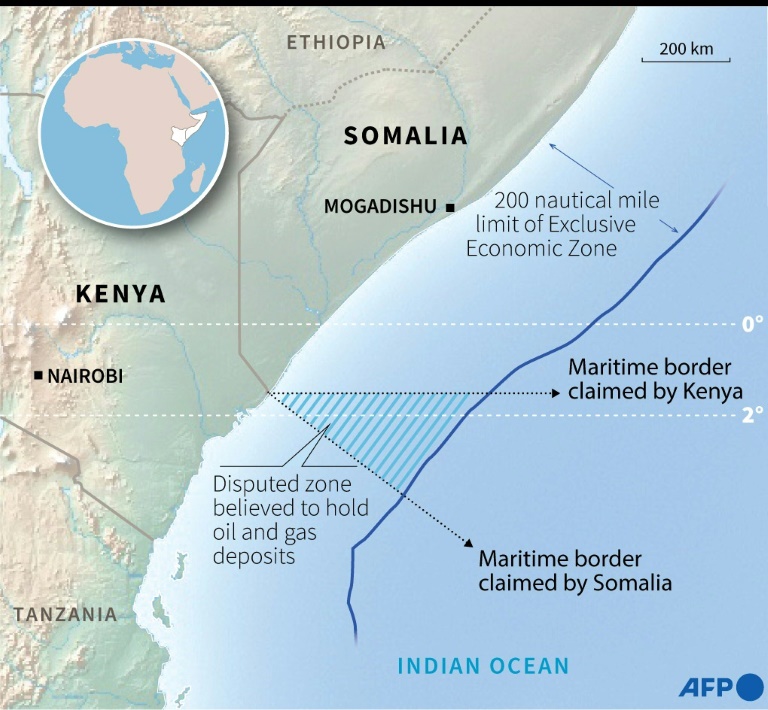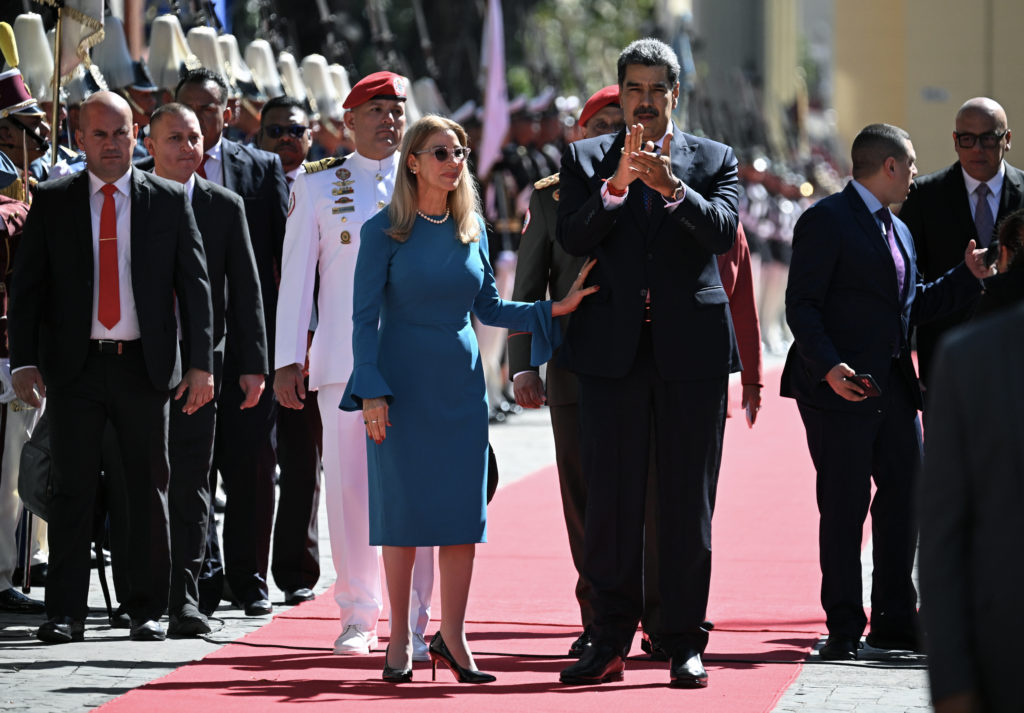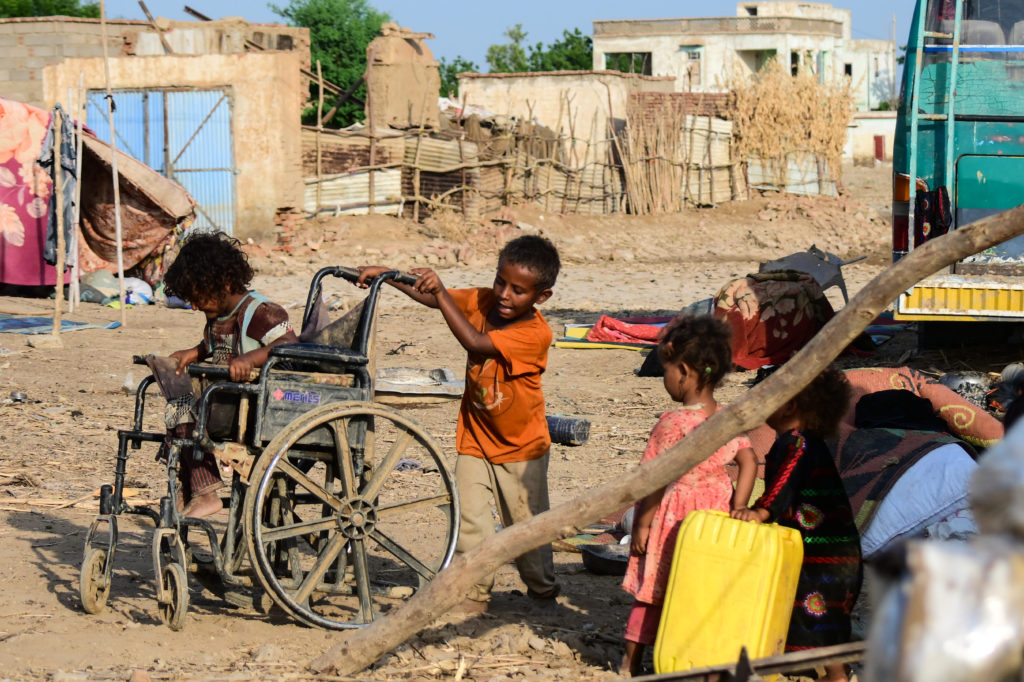The UN’s top court handed Somalia control of most of a potentially oil and gas-rich chunk of the Indian Ocean on Tuesday after a bitter legal battle with Kenya.
Kenya got only a small slice of the disputed tract of sea off the East African coast in the ruling by the International Court of Justice (ICJ) based in The Hague.
But with Kenya refusing to recognise the “biased” court’s authority, all eyes will be on what Nairobi does next in one of the world’s most troubled regions.
Judges unanimously ruled there was “no agreed maritime boundary” in force and drew a new border close to the one claimed by Somalia after a long-running case.
Chief judge Jean Donoghue, reading a summary of the judgment, said the “court is thus satisfied that the adjusted line… achieves an equitable solution.”
Somalia had dragged Kenya to the court in 2014 after years of efforts to resolve a dispute over the 100,000 square-kilometre (38,000 square-mile) tract failed.
The ICJ’s judgment is final and cannot be appealed, but the court, set up after World War II to rule in disputes between UN states, has no means of enforcing its rulings.
States can however go to the UN Security Council if another country fails to obey a ruling.
– ‘Severe cut-off effect’ –
At the heart of the Somalia-Kenya dispute was the direction that their joint maritime boundary should take from the point where their land frontiers meet on the coast.
Somalia insisted the boundary should follow the orientation of its land border and thus head out in a 200 nautical-mile line towards the southeast.
But Kenya said its boundary runs in a straight line due east — a delineation that would have given it a big triangular slice of the sea.
Nairobi says it has exercised sovereignty over the area since 1979.
The contested area is believed to contain rich gas and oil deposits, and also has important fishing rights. Nairobi has already granted exploration permits to Italian energy giant ENI but Somalia is contesting the move.
In its ruling on Tuesday, the ICJ threw out Kenya’s claims that Somalia had effectively consented to Nairobi’s border proposal.
Judges also rejected the line Kenya wanted to draw from the coast, saying it would have had a “severe cut-off effect” for Somalia.
But it also adjusted Mogadishu’s proposal slightly, saying Kenya risked having its own maritime rights sandwiched between Somalia to the north and Tanzania to the south.
Finally, the court dismissed all of Somalia’s claims for damages over surveying and drilling by energy firms that Kenya had allowed.
– ‘Inherent bias’ –
While UN states are in theory obliged to comply with ICJ judgments, enforcing rulings can be difficult.
In a similar dispute to the Somalia-Kenya row, Nicaragua dragged Colombia back to court in September after accusing Bogota of flouting a 2012 maritime ruling in Nicaragua’s favour.
Kenya pulled out of hearings in the Somalia case in March, then just over two weeks ago, Nairobi notified the UN secretary general that it was withdrawing its 1965 declaration accepting the ICJ’s compulsory jurisdiction.
The Kenyan foreign ministry accused the court of “obvious and inherent bias”.
“As a sovereign nation, Kenya shall no longer be subjected to an international court or tribunal without its express consent,” it said.
There was no immediate reaction from either country.
Monday’s verdict may further sour diplomatic relations between the two countries after Kenya in 2019 recalled its ambassador and accused Somalia of selling off oil and gas blocks in the contested area.
It tartly reminded Somalia of Kenya’s sacrifices in the battle against Al-Shabaab jihadists, with Nairobi being a major contributor of troops to the African Union forces fighting the Al-Qaeda-linked insurgents in Somalia.
The International Crisis Group think tank called on Kenya and Somalia to “agree on a mutually accepted way to implement the judgment.”
“The political stakes of this case are sky-high in both countries and there is a risk the court’s decision could be followed by a further slide in the relationship between Somalia and Kenya,” said Meron Elias, Horn of Africa Researcher at the group.
burs-dk/gd











